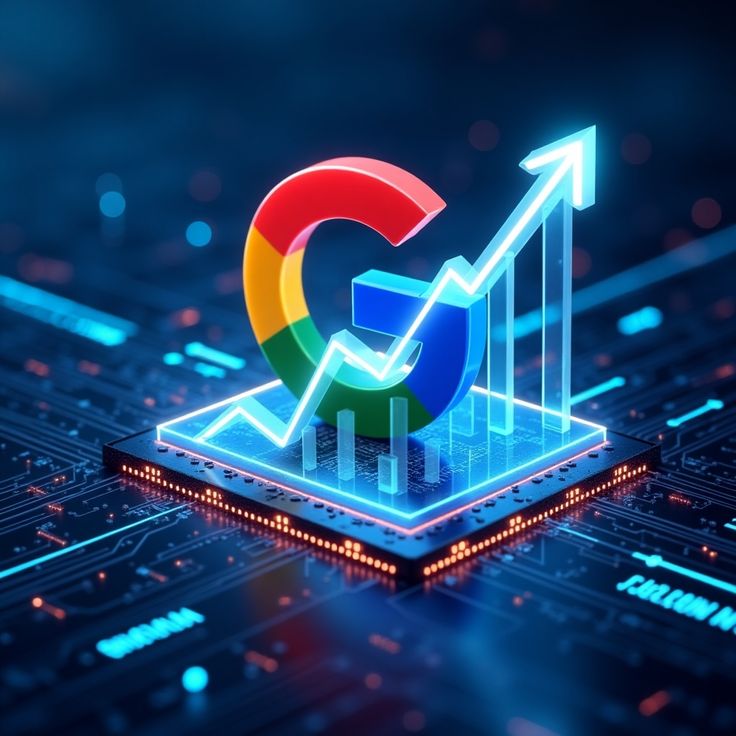Google’s June 2025 Algorithm Update: What Marketers Need to Know
The Google algorithm update 2025 has brought major shifts to the digital marketing landscape. Rolled out in June, this update introduced AI-powered changes to search results and disrupted local SEO rankings—leaving marketers eager to understand what’s different and how to stay ahead.
In this Google algorithm update 2025 post, we’ll break down what happened, who it affected, and what you can do to maintain your visibility in a constantly evolving search ecosystem.

What Changed in the June 2025 Update?
1.SERP Volatility and AI Overviews
Marketers began noticing ranking shifts as early as June 4, with major volatility peaking around June 9 and again on the 16th–18th. But it wasn’t just rankings that changed—Google’s AI Overviews (previously called SGE or Search Generative Experience) began dominating search results, offering direct answers without users needing to click.
Impact: Even if your page ranks well, click-through rates (CTR) may drop if AI provides the answer up front.
2.Crackdown on Spam and Manipulative Tactics
Google is doubling down on eliminating spammy practices—this includes:
- Cloaking and redirects
- Expired domain abuse
- Low-quality AI-generated content
- Toxic backlink schemes
Impact: Sites using aggressive SEO techniques or poor-quality content saw sharp ranking drops.
3.Local SEO Shake-Ups
Map Pack visibility fluctuated significantly for local companies. Some were added and removed from local results multiple times in a single day.
Impact: Local lead generation became unpredictable, even for well-optimized listings.
4.E-E-A-T and User Experience Are Front and Center
The algorithm reinforces Google’s commitment to E-E-A-T (Experience, Expertise, Authoritativeness, and Trustworthiness). Plus, Core Web Vitals like load speed, layout stability, and mobile usability are now more important than ever.
Who’s Been Hit the Hardest?
Ecommerce sites with thin product descriptions
- Affiliate marketers relying on old or low-quality backlinks
- Local service businesses with outdated or incomplete profiles
- Content farms with generic AI-generated articles
How Marketers Can Adapt
Here’s a checklist of actions you can take right now:
1.Optimize for AI Overviews
Use clear structure: H1s, H2s, FAQs, and bullet points
To increase eligibility for AI summaries, provide schema markup.
Ensure answers are concise and factual
2. Double Down on Quality Content
Highlight your personal or brand experience (E-E-A-T)
Refresh outdated blogs with new data and internal links
Use expert quotes, case studies, and original research
3.Improve Click-Through Rates
Rewrite page titles to be more benefit-driven
Use meta descriptions that hint at deeper value
Add rich snippets (star ratings, images, FAQs)
4.Strengthen Local SEO
Completely optimise your Google Business Profile, including the hours, ratings, and photographs.
Add local schema markup
Build local citations on trusted directories
5.Fine-Tune Technical Performance
Optimize for Core Web Vitals: Speed, stability, and responsiveness
Compress images, minimize scripts, and fix layout shifts
Prioritize mobile UX across all pages
6.Clean Up Your Backlinks
Use tools like Ahrefs or SEMrush to audit toxic links
Disavow harmful domains
Focus on earning editorial links from trusted publications
7.Track Your Progress
Monitor the following metrics to stay ahead:
- CTR & Impressions (Google Search Console)
- Keyword volatility (via SEMrush, Moz, or Rank Ranger)
- Core Web Vitals (PageSpeed Insights)
- Local Pack Visibility (BrightLocal or similar)
Final Thoughts
The June 2025 algorithm update isn’t just another core tweak—it’s a clear push toward AI-integrated search, deeper content authenticity, and cleaner SEO practices.
Marketers who focus on quality, relevance, and user-first experiences will not only survive but thrive in this new environment.
Read our recent marketing trends 2025 post to cover more updates.
